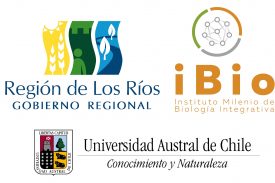
The Drapkin laboratory is seeking fun, energetic, driven scientists to join our dynamic group and make a difference in ovarian cancer.
The ideal candidate will be a highly motivated graduate student who is ready to advance into a postdoctoral position and make a 4-5 year commitment.
Candidates will have a PhD in Biochemistry, Molecular Biology, Cell Biology, or related Biological Science.
Candidates are expected to start in 2023
Fluent in English
Send your CV by September 1, 2022
For more information, see the attached flyer
Any question? Contact Dr. Ronny Drapkin
Contact: rdrapkin@pennmedicine.upenn.edu
Website: https://www.med.upenn.edu/drapkinlab/
Una postdoc chilena espera compatriotas en el lab!
Where: The University of Pennsylvania, Philadelphia, PA USA
Why study at the Penn Ovarian Cancer Research Center?
Philadelphia is a thriving, historic city. It is the birthplace of America, the home of Rocky, and a haven for sports fans and food lovers. The University of Pennsylvania is the oldest and one of the finest medical schools in the United States. Penn is rich in tradition and heritage and at the same time consistently at the vanguard of new developments and innovations in medical education and research. Since its founding in 1765 the School has been a strong presence in the community and prides itself on educating the leaders of tomorrow in patient care, biomedical research, and medical education. The School is comprised of 28 basic and clinical department, with over 2,500 faculty members and more than 2,500 students and trainees. In fiscal year 2018, the School received $814 million in support of its research activities from extramural sponsors, including $424 million from the National Institutes of Health, ranking 5th in the nation among all academic medical institutions.
Founded in 2007, the Penn Ovarian Cancer Research Center (OCRC) has been a leader in cutting-edge research focused on gynecologic malignancies. The goal of the OCRC is to translate important biological principles discovered in the laboratory into clinically useful diagnostic and therapeutic tools. We achieve this goal through a multidisciplinary approach that spans efforts in immunology and immunotherapy, vascular biology, epigenetics, genomics, early detection methods, and novel experimental model systems.
Position: The Drapkin laboratory is seeking fun, energetic, driven scientists to join our dynamic group and make a difference in ovarian cancer. The ideal candidate will be a highly motivated graduate student who is ready to advance into a postdoctoral position and make a 4-5 year commitment. Candidates will have a PhD in Biochemistry, Molecular Biology, Cell Biology, or related Biological Science and a strong publication record. The postdoc will be expected to work independently and should be facile with basic molecular biology techniques (tissue culture, DNA/RNA analyses, biochemistry, and rudimentary bioinformatics). The successful candidate must be well organized, fluent in English, be able to analyze data and results from experiments, be an independent thinker but also a team player.
Employer: Dr. Ronny Drapkin is the Director of the Penn OCRC and co-directs the Basser Center for BRCA. The Drapkin laboratory focuses on developing a comprehensive understanding of the genetic, molecular and physiological factors that drive the development of ovarian cancer. Recent work from our group has implicated the fallopian tube (FT) secretory cell as the likely cell-of-origin for a majority of high-grade serous ovarian carcinomas. This new concept of ovarian tumorigenesis has been a paradigm shift in the field and the Drapkin lab has been at the forefront in developing novel experimental platforms that address the role of the FT epithelium and its susceptibility to neoplastic transformation. These platforms include genetically engineered mouse (GEM) models, fallopian tube-derived cell lines, and patient-derived tumor xenografts. The lab is currently focused on utilizing these models to interrogate how genetic and epigenetic alterations influence lineage dependencies, genomic instability, DNA repair, replicative stress, and tumor metabolism.
Publication date: July 30, 2022.


¿Quieres dejar un comentario ?